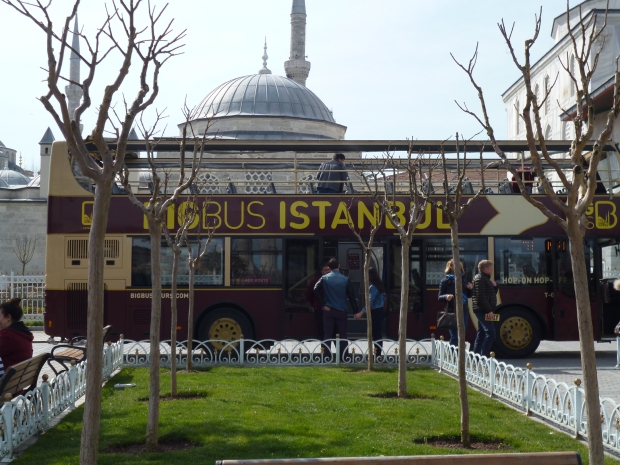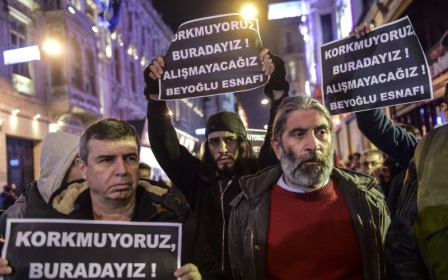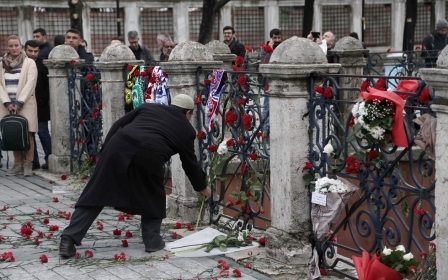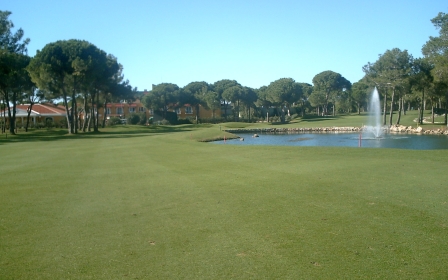Turkish hoteliers stare into abyss as tourism industry reels
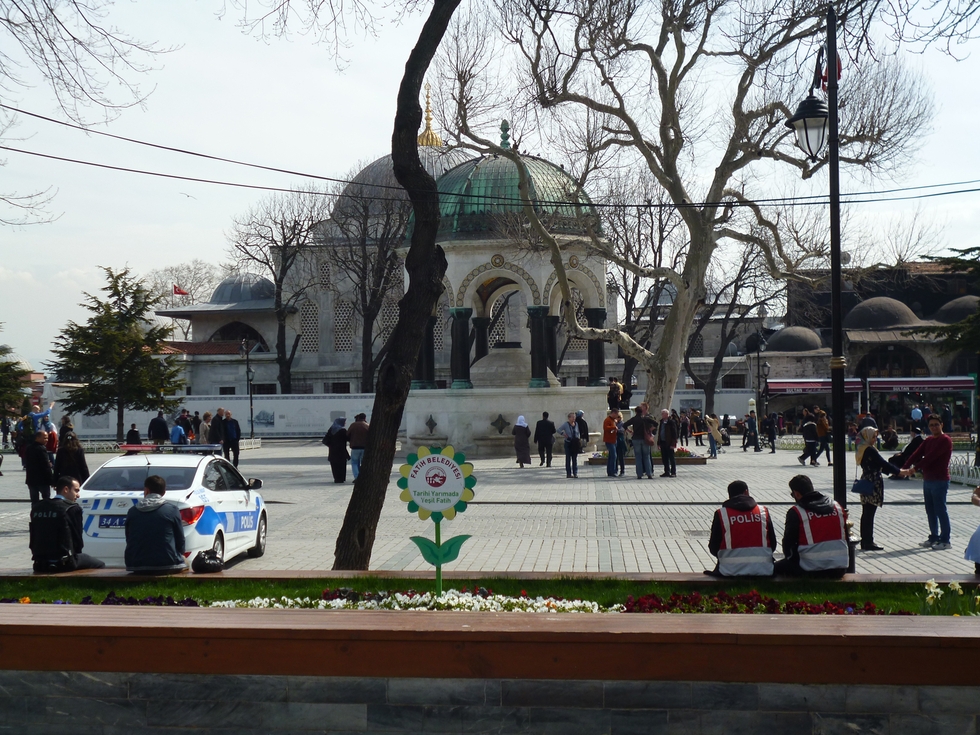
ISTANBUL, Turkey – A string of recent attacks have left Turkey’s once vibrant tourism industry in tatters. The suicide blast over the weekend in which five people – including two Israelis and one Iranian tourist – were killed is just the latest nail in the coffin.
Since then, life has been slow to return to the Turkish metropolis – normally pedestrian-clogged streets and tourist-heavy areas now feel empty.
Istanbul residents working in the service industry have noticed the change. Just a few years ago, Ferhat Demir, a head waiter at the Berr Hotel Istanbul says he would not have tolerated his staff taking extended smoking or tea breaks and would have sent them straight back to work to deal with the high tourism season that used to start in mid-April.
These days though, he just shrugs in resignation as employees lounge around at the hotel entrance. It is not because Demir, 40, has mellowed with age though. Instead he says he cannot face giving his employees more grief when so many of them know that their livelihoods could be on the line.
“I have been in this business and at this hotel for 24 years now. I have never seen it so bad,” Demir told Middle East Eye. “And we are located right at the heart of the city’s historical peninsula. I can’t imagine what other, more distant hotels are experiencing.”
All about safety
The sharply deteriorating security situation in the country due to the domestic Kurdish issue and the spillover of the Syrian war has driven a stake right through the heart of the tourism sector, with revenues in sharp decline from what used to account for around 4.5 percent of Turkey’s $800bn economy.
The past few months alone have witnessed multiple bombings in major cities including three in the capital, Ankara, and two in the heart of Istanbul’s tourist neighbourhoods – the first in Sultanahmet close to the city’s iconic Blue Mosque in January and now the second in its famous shopping district of Beyoglu just days ago.
Towns and cities in the country’s southeast have also been left in the grip of intensive urban warfare since July 2015, with both sides accusing each other of committing barbaric atrocities.
As the body bags have mounted, tourism has understandably shrivelled.
The decline has been made all the more noticeable due to a recent surge in tourism that saw Turkey pull in a growing number of European visitors put off by other Middle East countries. The regional situation since 2011 saw Turkey’s tourist numbers surpass the 35 million mark, with the government hopeful of attaining its target of 50 million visitors bringing in $50bn by 2023, the centennial of the Turkish republic.
The good times brought in a flurry of investment in hotels and other tourism-related infrastructure and manpower.
But many of these hotels and infrastructure now lie deserted and unused; stark reminders of safer and more prosperous times.
Hitting rock bottom
A recent report by the Hotel Association of Turkey found that hotel occupancy rates had dropped below 50 percent, making Turkey one of the worst performers in Europe.
Barbaros Koseoglu, Demir’s boss and owner of the Berr Hotel and also the Harrington Park Hotel in the Mediterranean resort city of Antalya, believes even these figures are not accurate and do not depict the real plight facing the industry.
“Since January our occupancy rates have been around 10-15 percent. Every other hotel owner says the same thing. The only people coming anymore are a few businessmen from the Middle East,” Koseoglu told MEE. “Tourists have almost become rare sightings.”
The government introduced a package to help the industry ride out the tough times, including subsidising flights.
Government officials seem sure the measures will offset the worst of the crisis, and that the country will soon be back on track, although Koseoglu, while he says he is appreciative, warns that these are just measures to ensure survival, and are unlikely to prevent many businesses from going under.
The tourism industry provides jobs for 2.5 million Turks, but many of these are now believed to be on the line or have already been shed.
“I used to employ 60 staff in Istanbul and 100 in Antalya three years ago. Now it is down to 30 in Istanbul and 65 in Antalya. If it continues as badly as it is now, I will be forced into making more cuts,” said Koseoglu.
“Any hotelier on rented premises has either wound up operations or is about to do so. It is just impossible to run a hotel with 15 percent occupancy rates. The overheads are not going to change.
“We shouldn’t forget that the tourism sector has been in a crisis for the past three years as a direct consequence of the war in Syria. The Russian crisis [after a Russian plane was downed for allegedly entering Turkish airspace in November] and the Sultanahmet bombing [that killed 10 people including eight German tourists] just provided the final fatal blows,” he added.
The impact of this crisis has had a trickle-down effect, hitting everyone from hotel owners to tour guides to street hawkers.
Erhan Demirci, 31, works at the Ziya travel agency that also conducts city sightseeing tours. According to him, the company he works for can only stay afloat because of its document translation services and logistics wings, which are still doing well.
“We cater only to Arabic-speaking tourists and despite what many people believe - even they have stopped coming,” he told MEE. “We used to do four to five daily group sightseeing tours, our biggest income generators. Now if we do one a week we can consider it a success.”
“Everyone is suffering. Just look - in the past few months alone 1,800 hotels have been put up for sale,” he added.
Out of touch?
The picture being painted by many in the industry seems a world away from the rosy government line that expects many more boom years ahead.
Tourism Minister Mahir Unal recently expressed certainty that Turkey would achieve the expected annual target of 50 million tourists and $50bn in revenue in time to mark the centennial of the Turkish republic in 2023.
In order to do this, Turkey is banking on targeting visitors from Asia’s most populous countries, like China and India, but hoteliers like Koseoglu say this will not be enough.
In the short term, he said, authorities must try to stop international conferences from cancelling events in the country that will help keep the industry afloat for now.
“Let’s say we increase visitor numbers in the future. Where are we going to accommodate them if hotels have all closed down?” Koseoglu asked.
He believes the regional situation will determine the recovery of the Turkish tourist industry and that the next five years look bleak.
Iranian tourists prove the exception
The one bright spot seems to be a boost in Iranian tourists who have been buoyed by the recent diplomatic opening and the promise of economic growth that followed the signing of the nuclear deal.
In the run up to the lengthy Persian new year’s holiday of Nowruz, Iranians flocked to Turkey in large numbers - the 12 daily flights to Istanbul alone from various Iranian cities all operated at full capacity.
“I came here to shop and to live a little,” Iranian tourist Mariam Yazdanparast, 26, told MEE. “For a few days I am not forced to cover my hair in public and I can have a glass of wine at bars and roadside cafes.”
The lack of visa requirements for Iranian tourists and competitive pricing also made her choice of destination easy. “The flights are not that expensive and hotel prices are the same as a few years ago so that’s good,” she told MEE late last week shortly before the deadly blast since blamed on the Islamic State group killed one of her fellow Iranians.
Abdullah, a street hawker, who sells selfie sticks to tourists and knows how to say “take beautiful photos of your beautiful selves” in six different languages says that these days Farsi is the only language he still uses.
“The only language of any use to me these days is Farsi. The Germans, the Russians, the English, they don’t come anymore,” he said. “But I am ready for when they return.”
Middle East Eye propose une couverture et une analyse indépendantes et incomparables du Moyen-Orient, de l’Afrique du Nord et d’autres régions du monde. Pour en savoir plus sur la reprise de ce contenu et les frais qui s’appliquent, veuillez remplir ce formulaire [en anglais]. Pour en savoir plus sur MEE, cliquez ici [en anglais].


